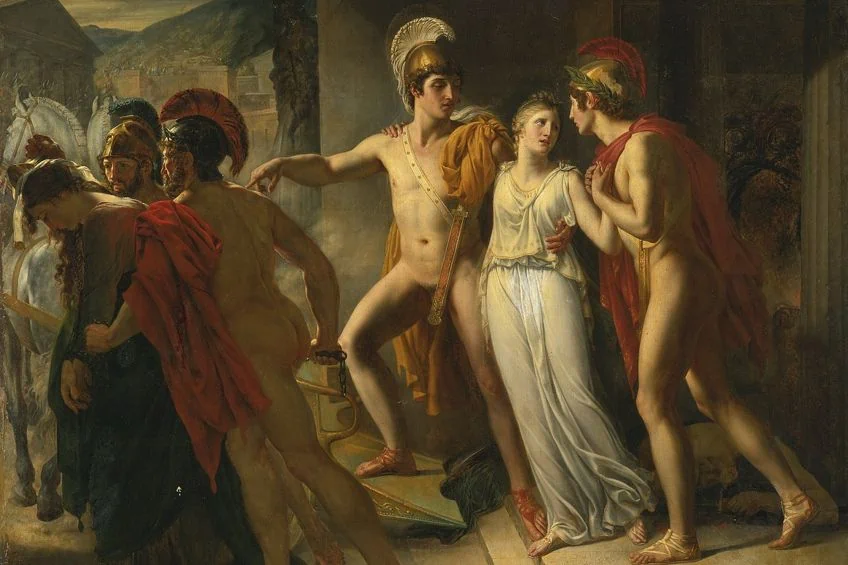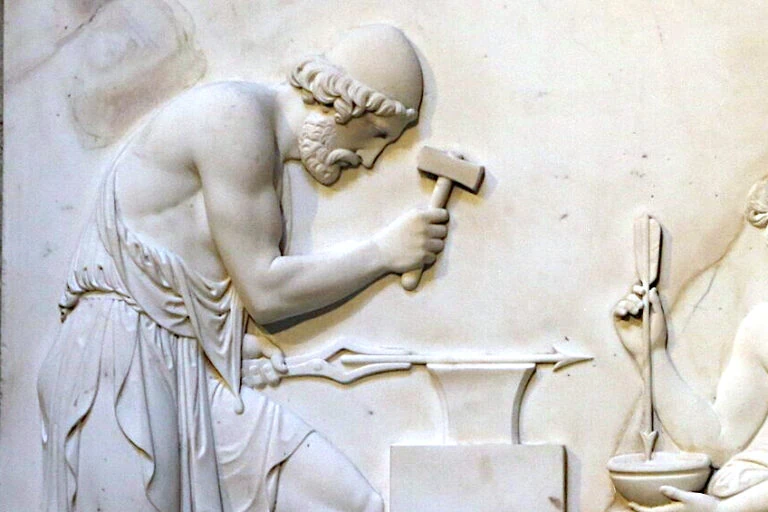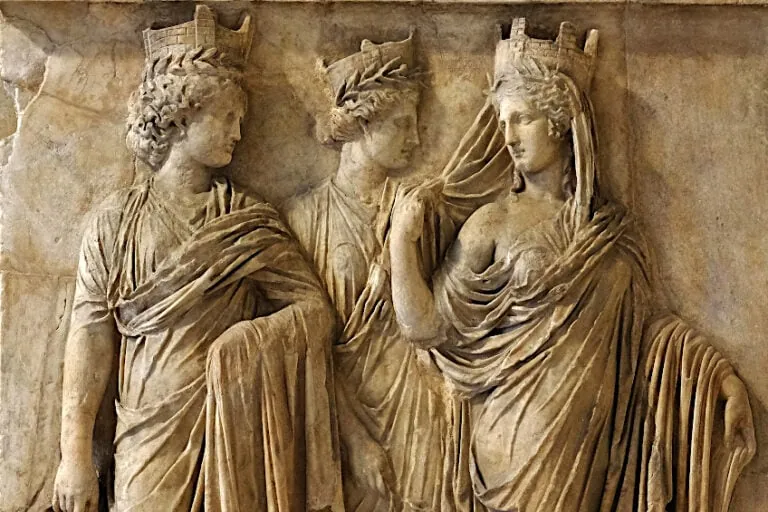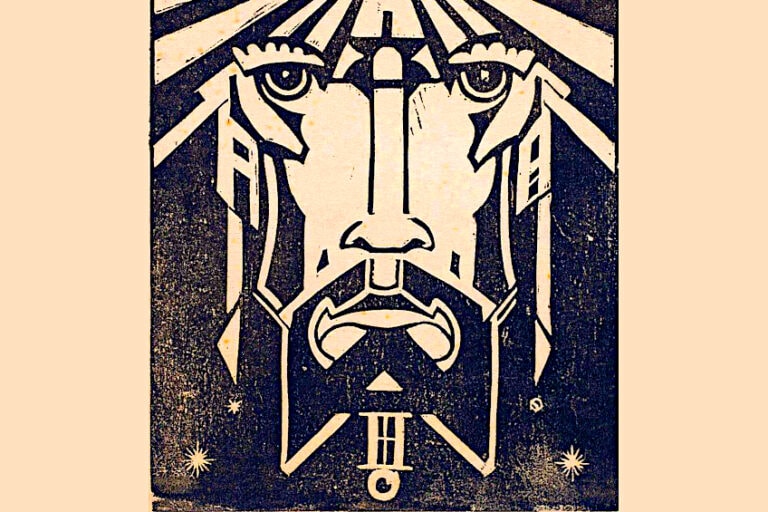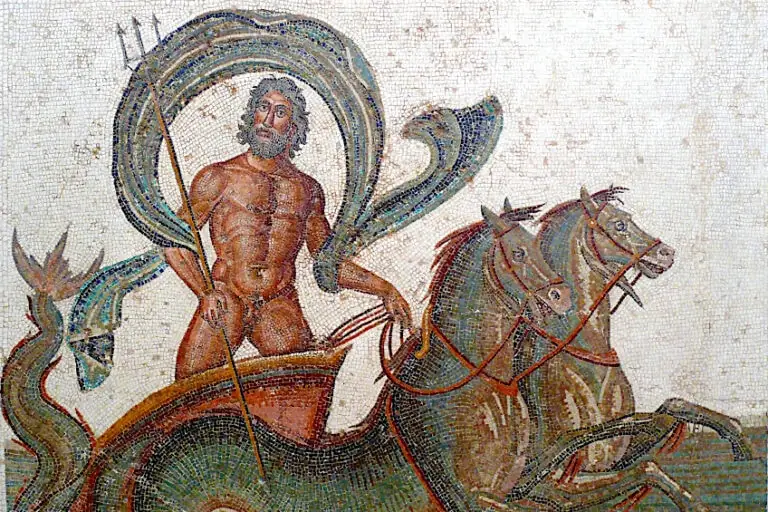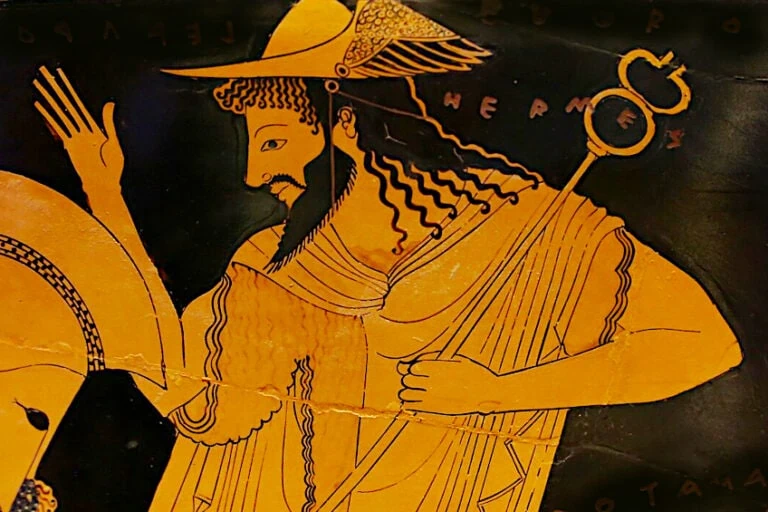Famous Greek Heroes – 17 Greeks You Should Know About
What would Greek mythology be without the famous Greek heroes that dared to dwell among the gods? While many stories revolve around the interactions of the various Olympian deities, there are also many Greek warriors that earned a place in these ancient tales. The ancient Greeks’ heroes were mere mortals, yet many of their tales involve taking on the gods or entering their realms. Let’s find out more about the heroes of Greek mythology below!
Our List of Greek Heroes
The famous Greek heroes of mythology were renowned for their various adventures, winning and losing the love of women, and slaying fantastical mythological monsters. While the term is overused in today’s culture of never-ending superhero franchises, the heroes of Greek mythology were the originals. But, why were these Greek warriors so significant in mythology? What impact did the ancient Greeks’ heroes have on the lives of gods and mortals? Let us answer that question by exploring our list of Greek heroes that were regarded as important to the ancient Greeks and continue to inspire us today.
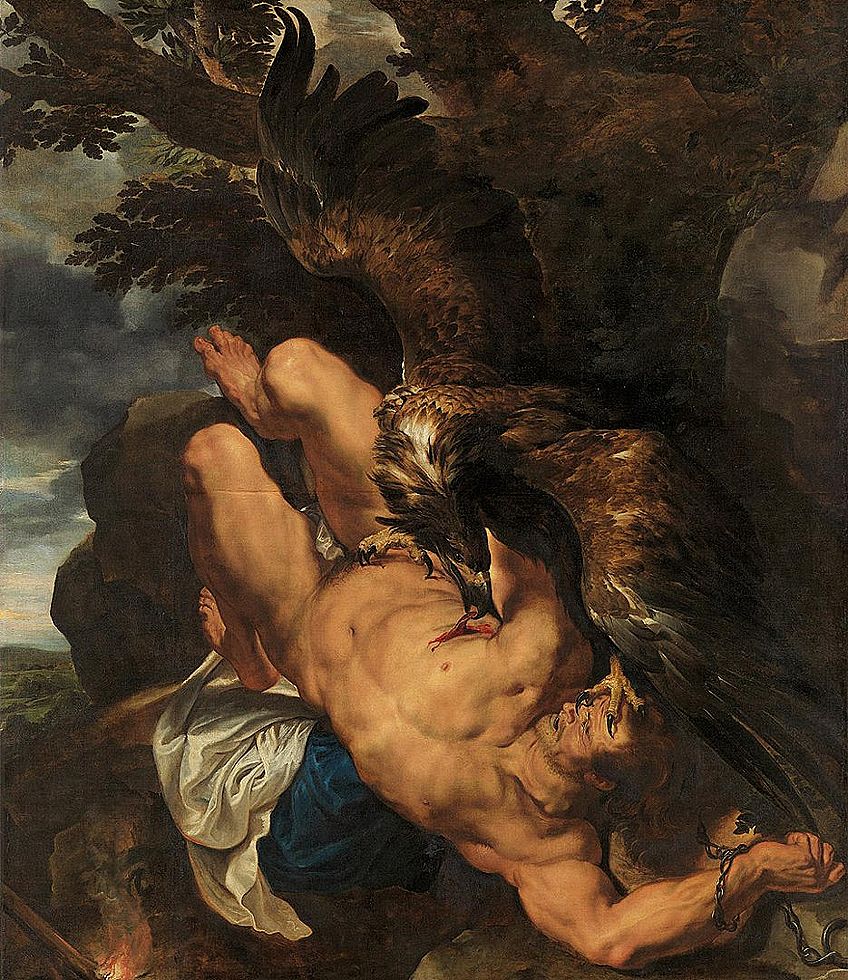 Prometheus Bound (c. 1611-1612) by Peter Paul Rubens; Frans Snyders, Public domain, via Wikimedia Commons
Prometheus Bound (c. 1611-1612) by Peter Paul Rubens; Frans Snyders, Public domain, via Wikimedia Commons
Achilles
Homer’s famous poem of adventure and conflict, The Iliad, features Achilles as the ultimate Greek warrior. Achilles was regarded as the greatest of the Achaean fighters known for their speed during the Trojan War, battling directly with Troy’s warrior hero Hector. Achilles is arguably the most recognized of the famous Greek heroes for being partially invulnerable, a characteristic of his fascinating and mythical story that is referred to as the Achilles Heel.
Achilles’ mother immersed him as a child into the River Styx, rendering him invulnerable everywhere save the heel where she had held him while dipping him in the water.
Achilles was an important Greek hero during the Trojan War for 10 years. However, Paris, the Trojan king’s son, stabbed Achilles in the heel. Today, the Achilles tendon connects the heel bone to the calf muscles, and a minor but serious weak spot known as an “Achilles heel”.
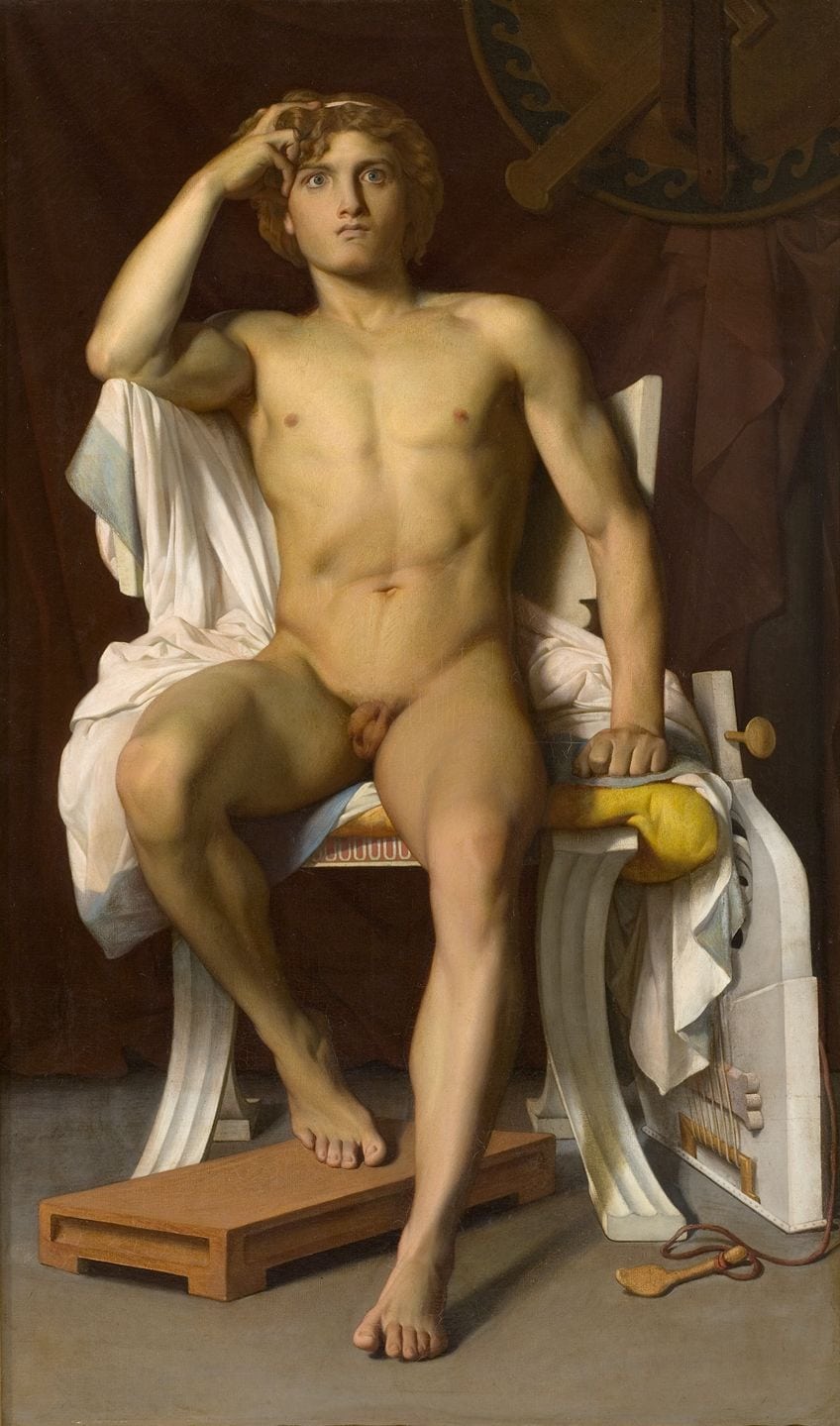 The Wrath of Achilles (1847) by François-Léon Benouville; François-Léon Benouville, Public domain, via Wikimedia Commons
The Wrath of Achilles (1847) by François-Léon Benouville; François-Léon Benouville, Public domain, via Wikimedia Commons
Agamemnon
Agamemnon was selected to command the Greek armies against Troy. He was the offspring of King Atreus of Mycenae and Menelaus’ brother. He was also Mycenae’s king and was admired for his military and leadership abilities. The Trojan War started when Paris of Troy kidnapped Helen, Menelaus’ wife, compelling a coalition of Greek warriors to unite under Agamemnon’s command to reclaim her. The sack of Troy, achieved through the renowned Trojan Horse ruse, was Agamemnon’s most prominent contribution to the battle.
However, his return home from the war was fraught with difficulties and tragedies.
Agamemnon was assassinated upon his return to Mycenae by his wife Clytemnestra and Aegisthus, her lover, in retaliation for the sacrificial offering of Iphigenia, their daughter, which Agamemnon had ordered before the war commenced in order to please the gods. Agamemnon’s story, as well as the events of the Trojan War and its ensuing aftermath, have inspired many works of literature, notably Aeschylus’ plays.
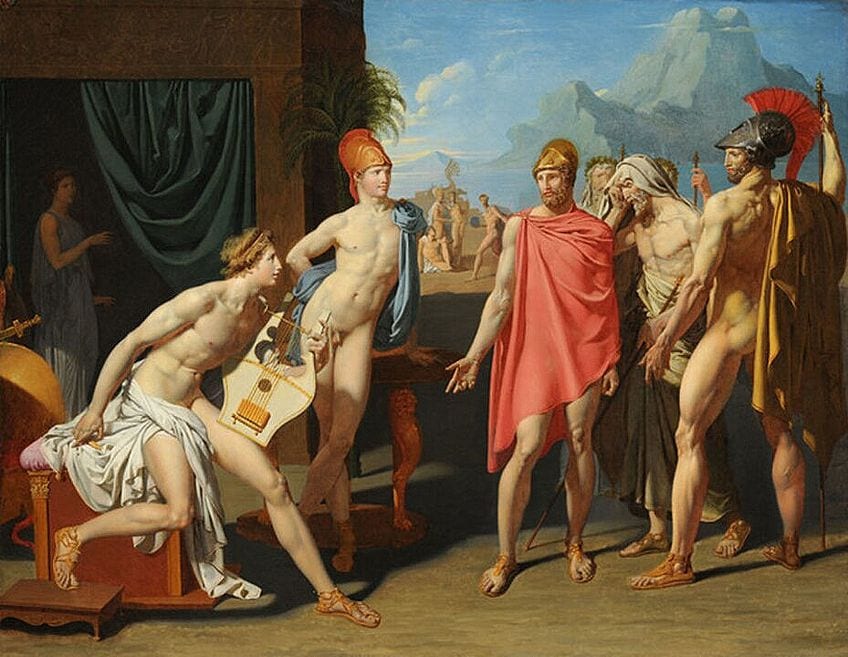 Achilles Receiving the Envoys of Agamemnon (1801) by Jean Auguste Dominique Ingres; Jean Auguste Dominique Ingres, Public domain, via Wikimedia Commons
Achilles Receiving the Envoys of Agamemnon (1801) by Jean Auguste Dominique Ingres; Jean Auguste Dominique Ingres, Public domain, via Wikimedia Commons
Aeneas
Aeneas was a Trojan prince and the child of Aphrodite and Anchises. He was an important figure in the events preceding the destruction of Troy and the subsequent establishment of Rome. Following the effective conquest of Troy by the Greeks during the Trojan War, Aeneas proceeded on an extensive and treacherous journey that eventually took him to Italy. The Aeneid tells the story of Aeneas’ voyage and adventures as he escaped Troy with a band of Trojan survivors.
They endured countless hardships, such as meetings with mythological creatures, trips to the underworld, and battles with diverse opponents.
Aeneas was portrayed as a good and religious hero who had been instructed by the gods and was destined to create a vast empire. Aeneas received divine direction and support from the gods upon his arrival in Italy, notably from his mother Aphrodite. He subsequently forged an alliance with King Latinus and married Lavinia, his daughter, bringing the Trojan and Latin peoples together. Aeneas went on to build the city of Lavinium, which served as a precursor to the eventual metropolis of Rome.
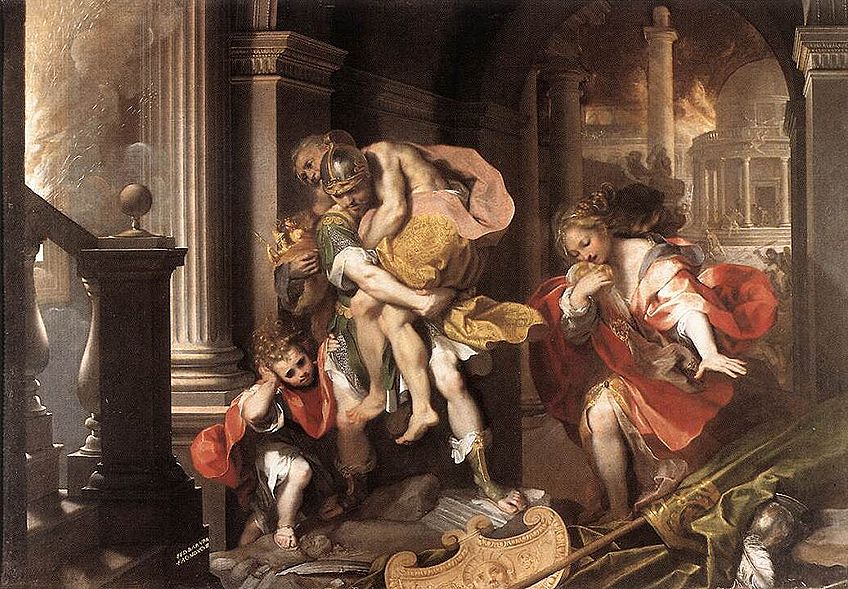 Aeneas Flees Burning Troy (1598) by Federico Barocci; Federico Barocci, Public domain, via Wikimedia Commons
Aeneas Flees Burning Troy (1598) by Federico Barocci; Federico Barocci, Public domain, via Wikimedia Commons
Cadmus
Cadmus was the child of the Phoenician King Agenor and Queen Telephassa in Greek mythology. He was also Europa’s brother, who had been taken by Zeus while in the form of a bull. Cadmus was instrumental in the establishment of the ancient city of Thebes. He explored the land after failing to locate his sister Europa. During this period, he sought advice from the Oracle of Delphi, who advised him to end his travels and stay in Boeotia. He lost his warriors to an Ares dragon there.
Cadmus slew the dragon, buried its fangs, and waited as armed men arose from the earth.
They fought until only five remained, who assisted Cadmus in finding Thebes. Cadmus married Harmonia, Ares’s daughter, but felt guilty for killing the dragon. Cadmus and his wife were converted into snakes as a gesture of penance. Cadmus went on to become Thebes’ first king, bringing many cultural advances to the region. He was also credited for introducing the Phoenician script to Greece, which later evolved into the Greek alphabet.
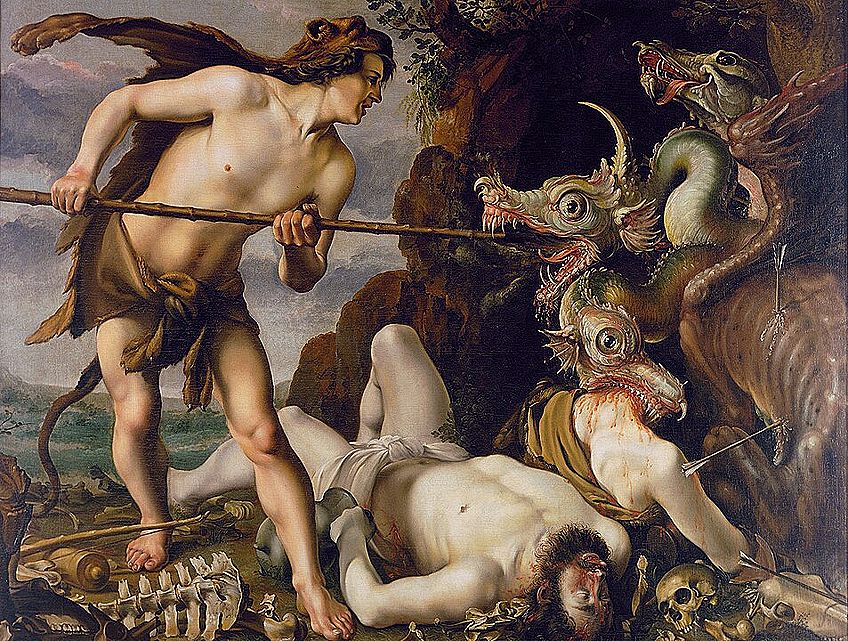 Cadmus Slaying the Dragon (1573-1617) by Hendrik Goltzius; Hendrik Goltzius, Public domain, via Wikimedia Commons
Cadmus Slaying the Dragon (1573-1617) by Hendrik Goltzius; Hendrik Goltzius, Public domain, via Wikimedia Commons
Hippolyta and the Amazons
Hippolyta was a well-known female fighter in Greek mythology. She was one of the Amazons, a band of powerful female warriors. Hippolyta ascended up the ranks and eventually became their leader. The Amazon queen was a formidable soldier who posed a challenge to many Greek mythological heroes. Hippolyta’s skill on the battlefield was no accident, it was in her DNA! The god of war, Ares, was her father and her mother was Otrera, the Amazonian Queen. Hippolyta was a demigod because of her father, but, like other demigods, she was not eligible to sit on Mount Olympus with the other Greek Pantheon gods and goddesses. That, however, made no difference to her, she was an Amazonian and fought on their side. The Amazonian women were a team of female warriors with the power and agility of the strongest male soldiers.
Their abilities were nothing short of extraordinary, with them excelling in everything from sword-wielding to archery.
Her mother, Otrera, is regarded as the mother of all the Amazonians. Hippolyta subsequently assumed the lead and commanded the female soldiers as their queen. She also had two siblings, her sisters Antiope and Melanippe. Queen Hippolyta wore her father’s military girdle, which would ultimately prove to be a very important item. The girdle was said to have magical properties, making it a source of envy for many Ancient Greeks. In Greek mythology, this female warrior’s role is usually centered on other characters. Her most notable appearances are in Heracles and Theseus stories.
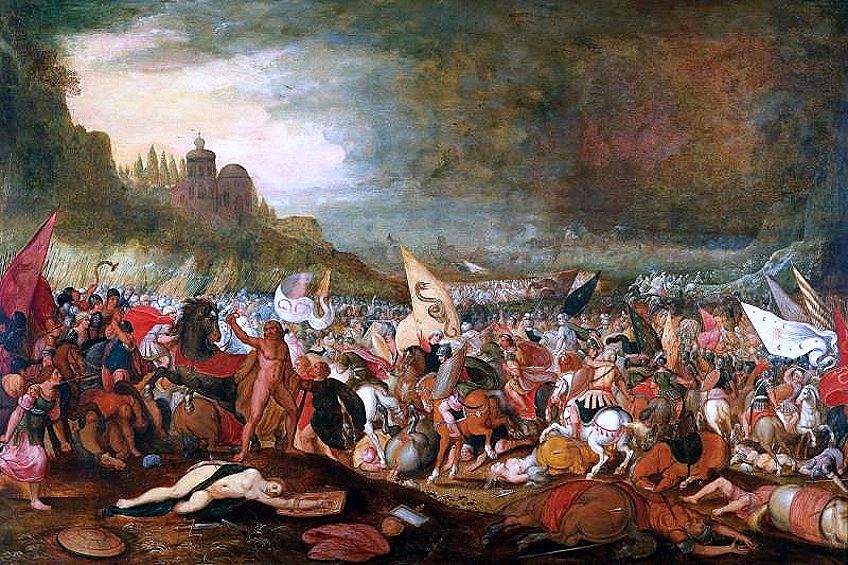 The Magic Girdle of Hippolyta, Queen of the Amazons (16th Century) by Antoon Claessens; Antoon Claessens, Public domain, via Wikimedia Commons
The Magic Girdle of Hippolyta, Queen of the Amazons (16th Century) by Antoon Claessens; Antoon Claessens, Public domain, via Wikimedia Commons
Perseus
Perseus, the offspring of Dana and Zeus, accomplished daring tasks with his quick intellect and fighting abilities. His most renowned feat was his execution of the Gorgon Medusa. The famous Greek hero killed Medusa by watching her reflection in a mirror because if he dared to look straight at her, he would turn to stone. Perseus kept Medusa’s head in his knapsack after he had slayed her with his sword.
Later, in order to save Princess Andromeda from a sea monster, Perseus withdrew Medusa’s head and turned the beast to stone.
After defeating Medusa and marrying Andromeda, Perseus returned to Seriphos, where his mother awaited him. When he returned, he found out that King Polydectes had been cruel to his mother while he was on his journey. Enraged, Perseus carried Medusa’s head to the king, but rather than just handing over the severed head to Polydectes, he used it as a weapon against his opponent. Eventually, Perseus would be free of the head of Medusa when he handed it to Athena as a gift.
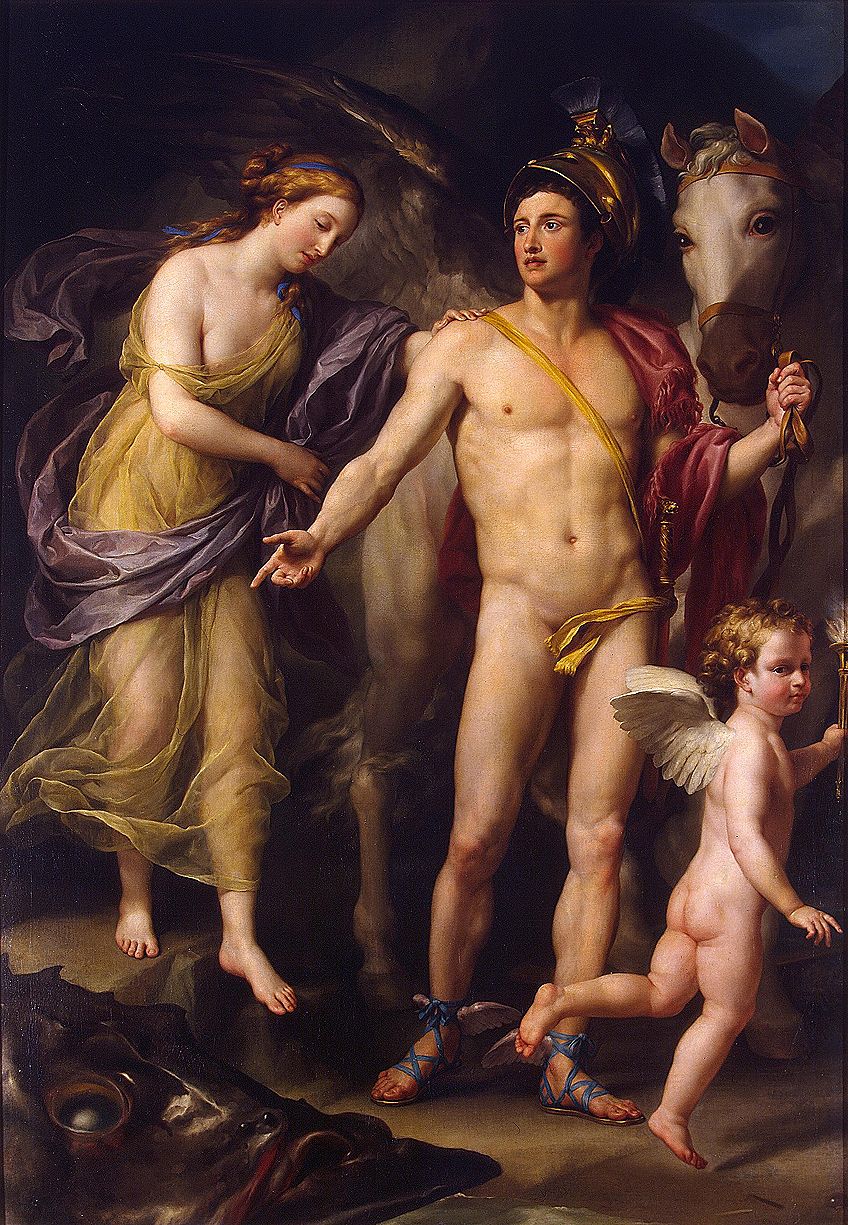 Perseus and Andromeda (1778) by Anton Raphael Mengs; Anton Raphael Mengs, Public domain, via Wikimedia Commons
Perseus and Andromeda (1778) by Anton Raphael Mengs; Anton Raphael Mengs, Public domain, via Wikimedia Commons
Theseus
Not many ancient Greek heroes are remembered for using silk thread to get out of a crisis, but Theseus is one of them. The Greek demi-god is famous for his exploits of strength, but he is more recognized for his divine brilliance and wisdom. He achieved many incredible triumphs in his youth, yet he died as a despondent monarch in exile. Theseus was raised by his mother, Aethra, who was the child of Troezen’s King Pittheus.
Aegeus, King of Athens, came to Troezen after consulting the Oracle of Delphi about finding an heir.
When Theseus grew older, he just picked up the enormous boulder and discovered his father’s belongings, so his mother guided him to Athens. He picked the land path over the safer nautical option while knowing there would be many dangers ahead. He had to endure six fights along the way, including vanquishing four bandits, one monstrous pig, and one giant by using power and cunning.
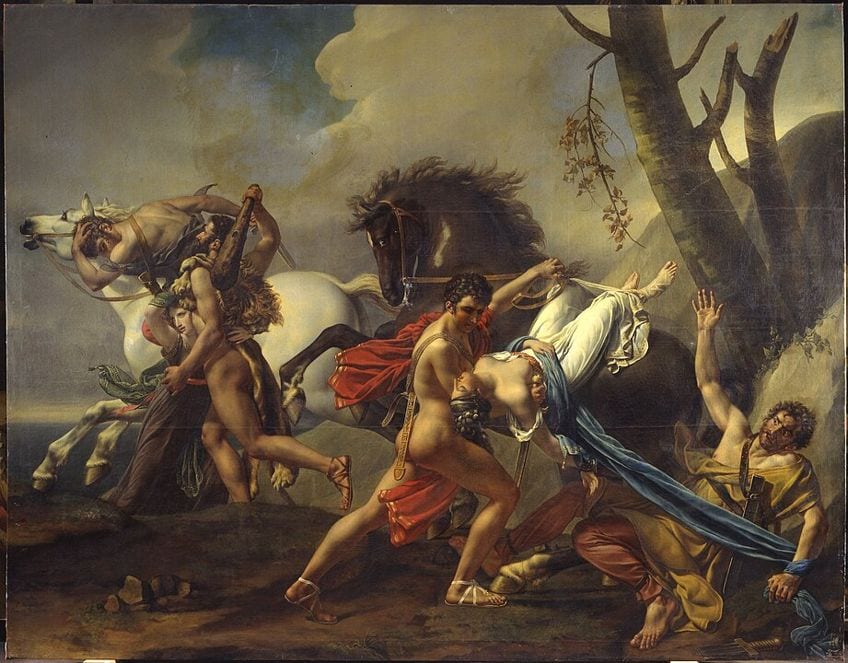 Theseus and Pirithoüs Clearing the Earth of Brigands, Deliver Two Women from the Hands of their Abductors (1806) by Angélique Mongez; Angélique Mongez, Public domain, via Wikimedia Commons
Theseus and Pirithoüs Clearing the Earth of Brigands, Deliver Two Women from the Hands of their Abductors (1806) by Angélique Mongez; Angélique Mongez, Public domain, via Wikimedia Commons
Bellerophon
Perseus wasn’t the only one who rode Pegasus, the winged horse. Bellerophon was also given permission to ride the enchanted steed. Despite the fact that predictions and divine intervention abounded in this man’s life, he died tragically as a result of his thoughtless hubris. Bellerophon was born as a demi-god to Poseidon and Euernoyme at Corinth before it was called Corinth. His mother was no average mortal since Athena had trained her to compete with the gods in cunning and intellect.
Glaucus, Eurynome’s husband, believed the child was his and raised him as his own son.
It’s no surprise that Bellerophon was fond of horses; both of his parents had a strong connection to them. Poseidon created the first horse for humans, and Glaucus bred his horses to be more savage in combat by giving them human flesh. Bellerophon had a boyhood ambition of riding the famous Pegasus, which became his first mission. Bellerophon dreamed of a goddess bestowing a golden bridle on him and awoke to find that she had done so. Before approaching Pegasus, he offered an acceptable sacrifice to Poseidon and Athena. He eventually located the amazing horse resting in a meadow and got the opportunity to finally ride him.
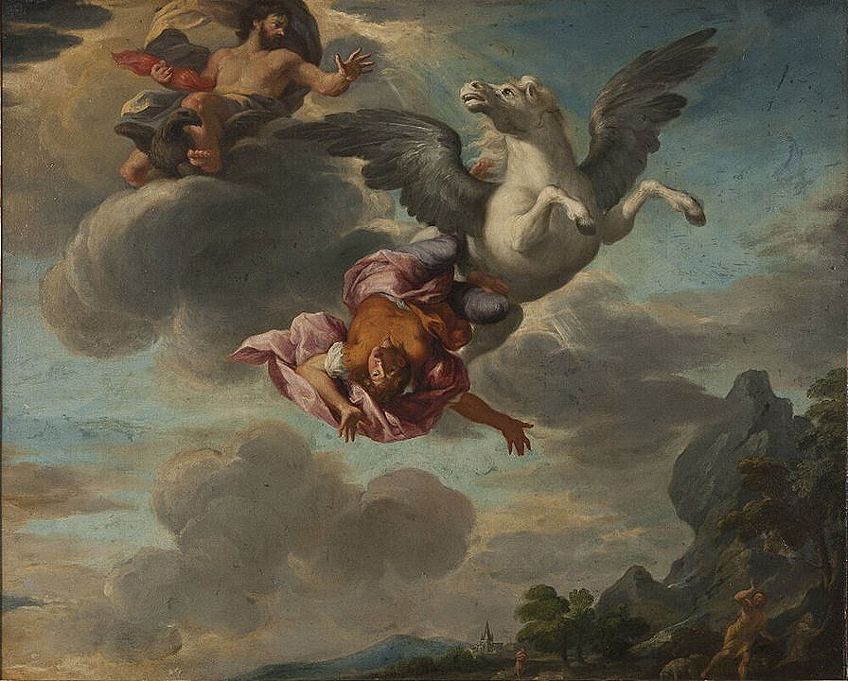 Jupiter and Bellerophon (17th Century) by unknown artist; AnonymousUnknown author, Public domain, via Wikimedia Commons
Jupiter and Bellerophon (17th Century) by unknown artist; AnonymousUnknown author, Public domain, via Wikimedia Commons
Hector
Hector possessed no divine abilities, instead, as a mortal, he trained, learned from his experiences, and rose to become the best of Troy’s soldiers. He is said to have been revered not just by the Trojans, but also by the ancient Greeks. Hector did not want to fight the Greeks, but when the Greeks arrived at Troy, he assumed command of the Trojan Army. According to a prophecy, the first Greek to set foot on Trojan soil will perish.
Although Odysseus officially stepped off the boat first, he had thrown his shield on the ground and walked on it rather than on actual land.
Odysseus was followed by Protesilaus, who walked on the soil. Protesilaus was killed by Hector’s hand during a duel, as predicted since Hector was a symbol of Troy to the gods. After Achilles slaughtered her whole family and devastated their city, Hector married Andromache, the daughter of Eetion, who controlled Cilician Thebe. They had a single child, an infant son named Astyanax, who perished at the hands of the Greeks.
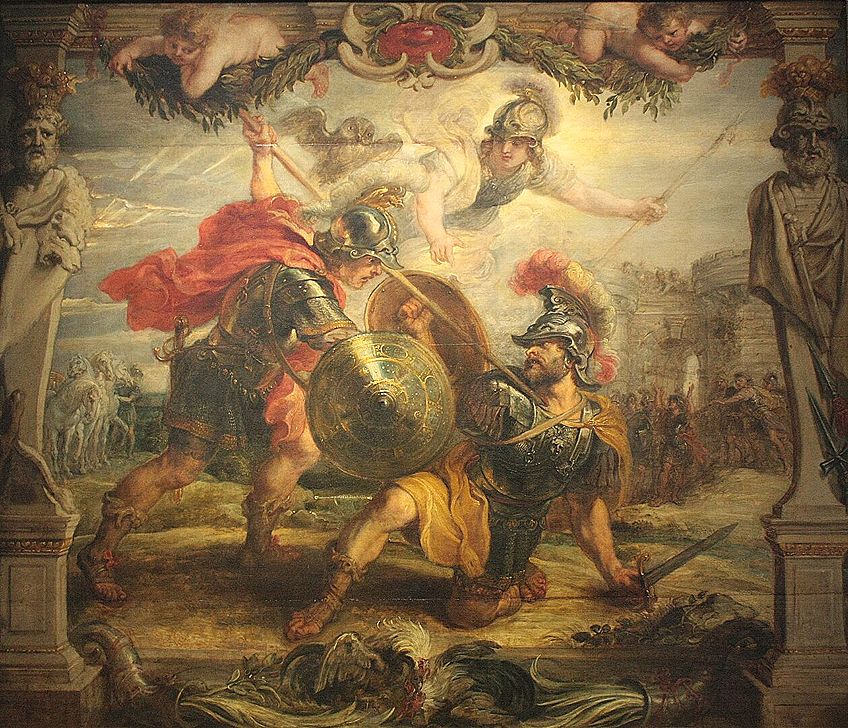 Achilles Vanquishes Hector (1630) by Peter Paul Rubens; Peter Paul Rubens, Public domain, via Wikimedia Commons
Achilles Vanquishes Hector (1630) by Peter Paul Rubens; Peter Paul Rubens, Public domain, via Wikimedia Commons
Jason
Jason was a heroic character famed for leading the Argonauts and hunting for the Golden Fleece. He was the son of Aeson, Iolcus’ legitimate ruler, and Alcimede. His uncle Pelias, however, stole the throne and banished Jason. He had been raised by the centaur Chiron and grew up to be a talented and daring hero. His most famous mission was the search for the Golden Fleece. In an attempt to get rid of Jason, Pelias dispatched him on a perilous journey to acquire the fleece, a treasured relic thought to be hidden in the faraway kingdom of Colchis. Jason gathered a band of heroes called the Argonauts, and they set sail on the Argo.
Throughout the course of their journey, Jason and the Argonauts confronted several fabled creatures, such as the Clashing Rocks, harpies, and Ladon, the dragon-guardian of the Golden Fleece.
They successfully obtained the Golden Fleece with the assistance of the witch Medea, who had fallen in love with Jason. Jason and Medea encountered more challenges and tribulations after returning to Iolcus. Medea utilized her magical abilities to help Jason, but their deeds had deadly repercussions. In the end, multiple versions differed on Jason’s fate. According to certain accounts, Jason and Medea were banished and died tragically. In other tales, Jason was killed when a decaying piece of the hull of the Argo, the vessel that had transported them on their journey, fell on him.
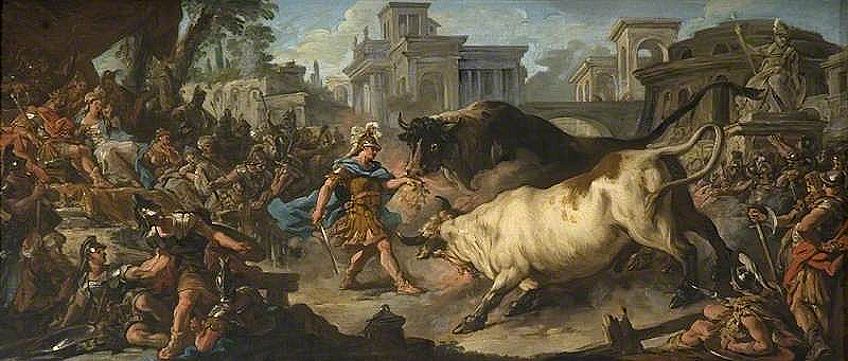 Jason Taming the Bulls of Aeëtes (1742) by Jean-François de Troy; Jean-François de Troy, Public domain, via Wikimedia Commons
Jason Taming the Bulls of Aeëtes (1742) by Jean-François de Troy; Jean-François de Troy, Public domain, via Wikimedia Commons
Odysseus
The Greek hero Odysseus is the central character in Homer’s epic work The Odyssey. He is the son of Anticlea and Laertes, king of Ithaca, the spouse of Penelope, and Telemachus’s father. The Odyssey recounts Odysseus’ return home after the completion of the Trojan War. Additional texts in the epic cycle offer more details, such as his death at the hands of Telegonus, his and Circe’s son.
Odysseus served in the Trojan War for a decade before inventing the wooden horse, which is only one of the reasons why he was regarded as a particularly crafty or wily character.
He suffered Poseidon’s wrath for blinding Polyphemus, the Cyclops son of Poseidon. In revenge, it took Odysseus an additional ten years to return home, just in time to chase away Penelope’s suitors. The Odyssey follows Odysseus and his entourage on their journey back from the Trojan War to Ithaca over a period of a decade.
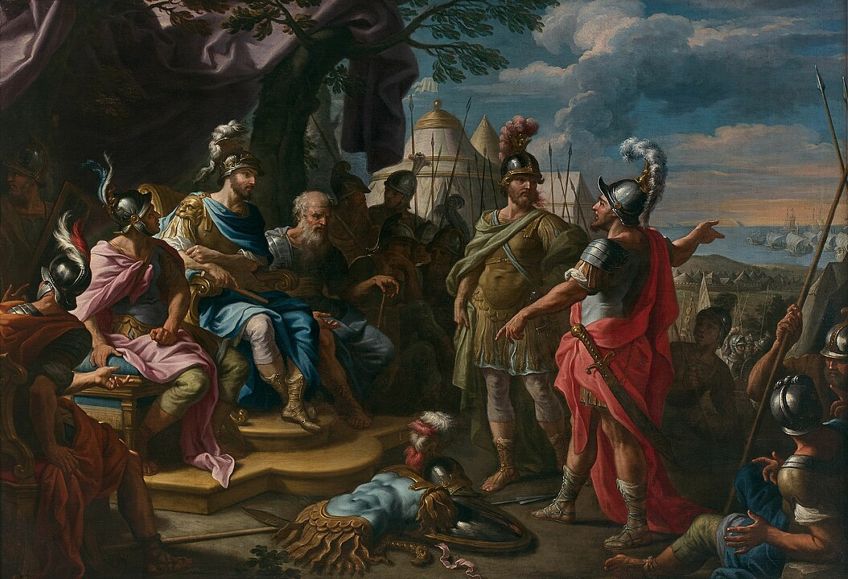 The argument between Ajax and Odysseus over Achilles’ Armor (18th Century) by Agostino Masucci; Agostino Masucci (1691 – 1758), Public domain, via Wikimedia Commons
The argument between Ajax and Odysseus over Achilles’ Armor (18th Century) by Agostino Masucci; Agostino Masucci (1691 – 1758), Public domain, via Wikimedia Commons
Atalanta
Atalanta was a human huntress who took a pledge of virginity to Artemis in order to demonstrate her devotion, and these themes of hunting and virginity dominate most tales about her. Whether she’s fighting and beating male heroes like Peleus or traveling with Jason and the Argonauts, Atalanta was at the forefront of the action.
Atalanta was born in a region of Greece in the southern portion of the Peloponnese peninsula known as Arcadia, according to Greek mythology.
Atalanta had been abandoned by her parents as a child and left to die in the wilderness, apparently because they expected a son. A she-bear rescued and nursed Atalanta until she was discovered by a party of hunters who subsequently raised her. She eventually acquired the ability to hunt like a bear and became an expert huntress. Atalanta grew up fending for herself, despised the thought of marriage, and disliked males in general. She was soon fully grown and deadly, slaying centaurs in honor of Artemis.
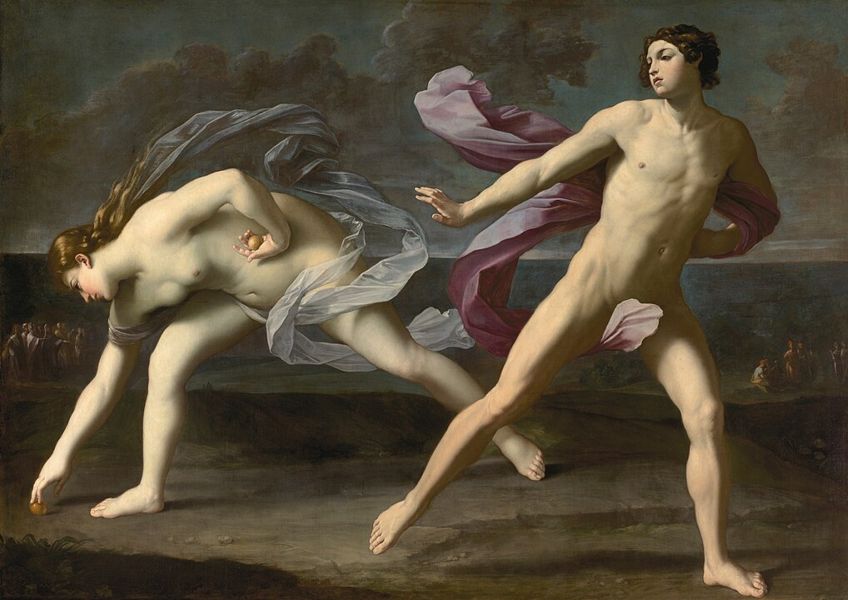 Hippomenes and Atalanta (1618–1619) by Guido Reni; Guido Reni, Public domain, via Wikimedia Commons
Hippomenes and Atalanta (1618–1619) by Guido Reni; Guido Reni, Public domain, via Wikimedia Commons
Oedipus
Oedipus was a child of Thebes’ Queen Jocasta and King Laius. An oracle said at his birth that Oedipus would one day murder his father and end up marrying his own mother. To avoid this destiny, his parents sent a servant to dispose of the newborn Oedipus on a mountainside. However, the servant felt sorry for the helpless baby and instead gave him over to a Corinthian shepherd. Oedipus was reared as Queen Merope and King Polybus of Corinth’s adopted son, assuming that they were his real parents.
Oedipus grew up hearing rumors about his actual parents and the prophecy surrounding his fate.
In order to prevent the prophecy from happening, he left Corinth to avoid harming his purported parents. During his voyage, Oedipus came across Laius, his biological father, at a fork in the road and murdered him in a rage, unaware that it was his father, thereby fulfilling the first half of the prophecy. He went on to Thebes, where he solved the mystery of the Sphinx, a fabled beast that tormented the city. The Thebans rewarded Oedipus by making him king, and he ended up marrying his biological mother, Jocasta, fulfilling the second part of the prophecy.
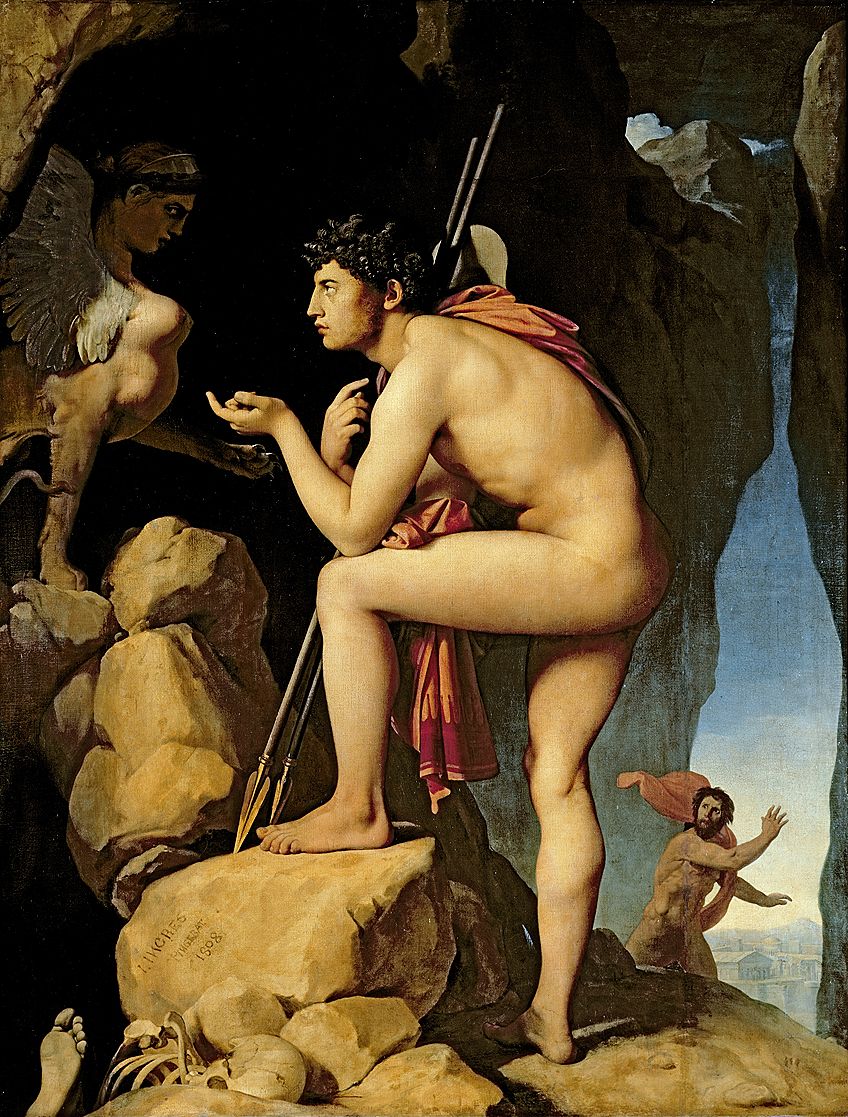 Oedipus and the Sphinx (1808) by Jean Auguste Dominique Ingres; Jean Auguste Dominique Ingres, Public domain, via Wikimedia Commons
Oedipus and the Sphinx (1808) by Jean Auguste Dominique Ingres; Jean Auguste Dominique Ingres, Public domain, via Wikimedia Commons
Hercules
This hero’s reputation in Greek mythology is unparalleled; his greatest exploits have been documented as the 12 Labors of Hercules. These included defeating terrifying monsters like the Nemean Lion, the Hydra, and the Erymanthean Boar, as well as fulfilling challenging tasks like cleaning King Augus’ enormous and filthy stables and collecting the Hesperides’ golden apples. These and other duties were designed by King Eurystheus, Hercules’ cousin, who was assigned as his taskmaster by the Oracle of Delphi after the hero massacred his own family in a fit of rage. Hercules appeared in a second series of adventures known as the Parerga.
He was also Jason’s comrade on the Argonauts’ hunt for the Golden Fleece.
Hercules was eventually deified, and his devotion expanded over Greece, Asia Minor, and Rome. One of the Parergas describes Hercules’ encounter with the centaur Nessus. While traveling with his bride Deianeira, Hercules came upon a rushing river and a cunning centaur eager to ferry her over. Hercules killed the centaur with an arrow when he pressed himself onto Deianeira. Nessus persuaded the lady that his blood would make her hero immortal; instead, it afflicted him with a living fire, forcing Hercules to implore Zeus to kill him. Hercules’ eternal half ascended to Olympus when his mortal body was destroyed.
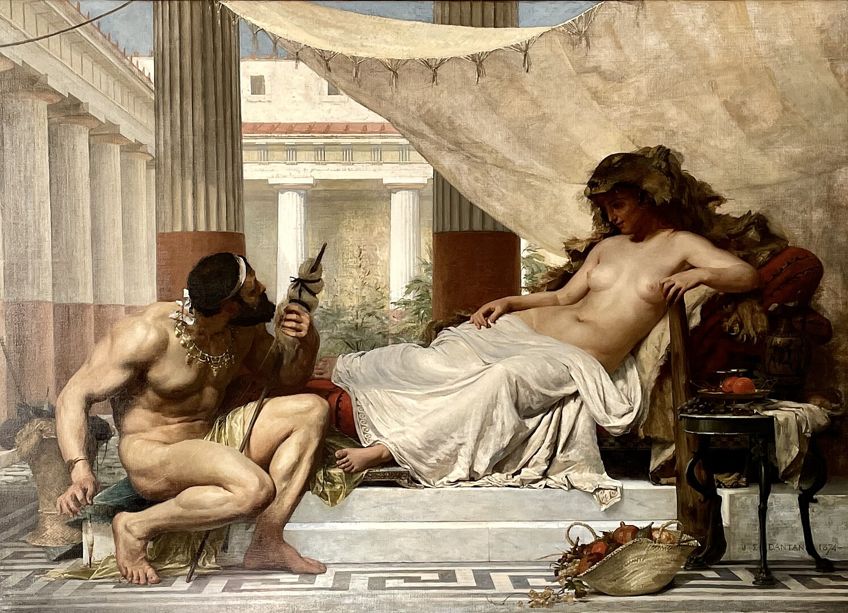 Hercules at the Feet of Omphale (1874) by Édouard Joseph Dantan; Édouard Joseph Dantan, CC BY-SA 4.0, via Wikimedia Commons
Hercules at the Feet of Omphale (1874) by Édouard Joseph Dantan; Édouard Joseph Dantan, CC BY-SA 4.0, via Wikimedia Commons
Asclepius
Asclepius was known as the ancient Greek deity of medicine, and a child of Coronis and Apollo. He married Epione, the goddess of calm, and they had several offspring, including Hygeia, Panacea, Iaso, Aceso, Aglaea, and Aegle. They also had four sons: Podalirius and Machaon, who were renowned healers who participated in the Trojan War; Telesphorus, who accompanied his sister, Hygeia, and represented recovery; and Aratus.
Chiron, the Centaur, reared Asclepius and trained him in medicine and the healing arts.
Asclepius once cured a snake, which in turn gave him hidden information – snakes were thought to be celestial entities that were smart and could heal. This explains why the rod wrapped with a snake became the symbol of Asclepius. He was so skilled at healing that he was able to defy death and bring individuals back from the dead. As a result, Zeus murdered him to preserve the balance and put him in the night sky under the Ophiuchus constellation.
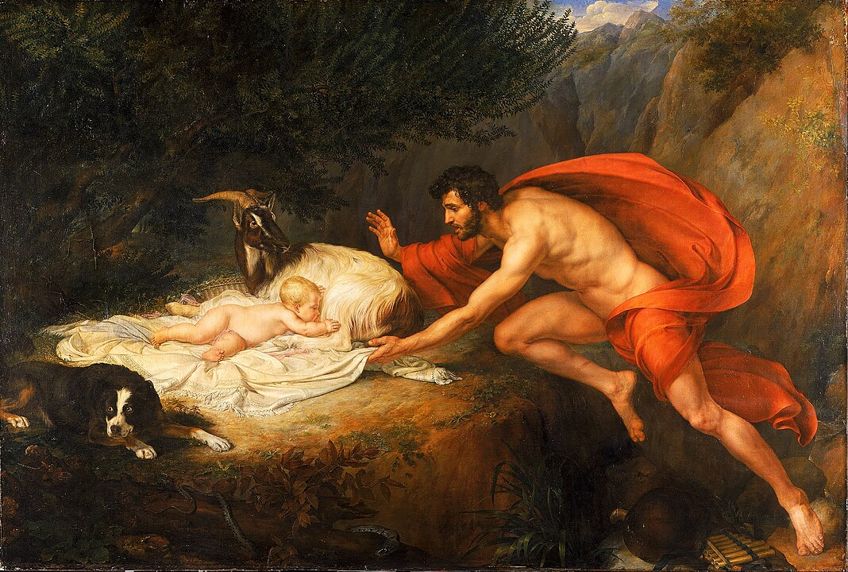 The Finding of Aesculapius (1839) by Giovanni Tognolli; Giovanni Tognolli, Public domain, via Wikimedia Commons
The Finding of Aesculapius (1839) by Giovanni Tognolli; Giovanni Tognolli, Public domain, via Wikimedia Commons
Orpheus
Orpheus is a well-known Greek hero for a couple of reasons. He is most known for his music rather than his combat abilities. He was one of the Argonauts in Jason’s hunt for the Golden Fleece, and he withstood even Theseus. Orpheus traveled to the Underworld to try and retrieve his wife, Eurydice, who had perished as a result of a snakebite. He went to the Underworld’s ruling couple, Persephone and Hades, and convinced Hades to let him bring his wife back to life.
He was eventually granted permission on the condition that he did not look at Eurydice until they reached daylight, which he was unable to achieve.
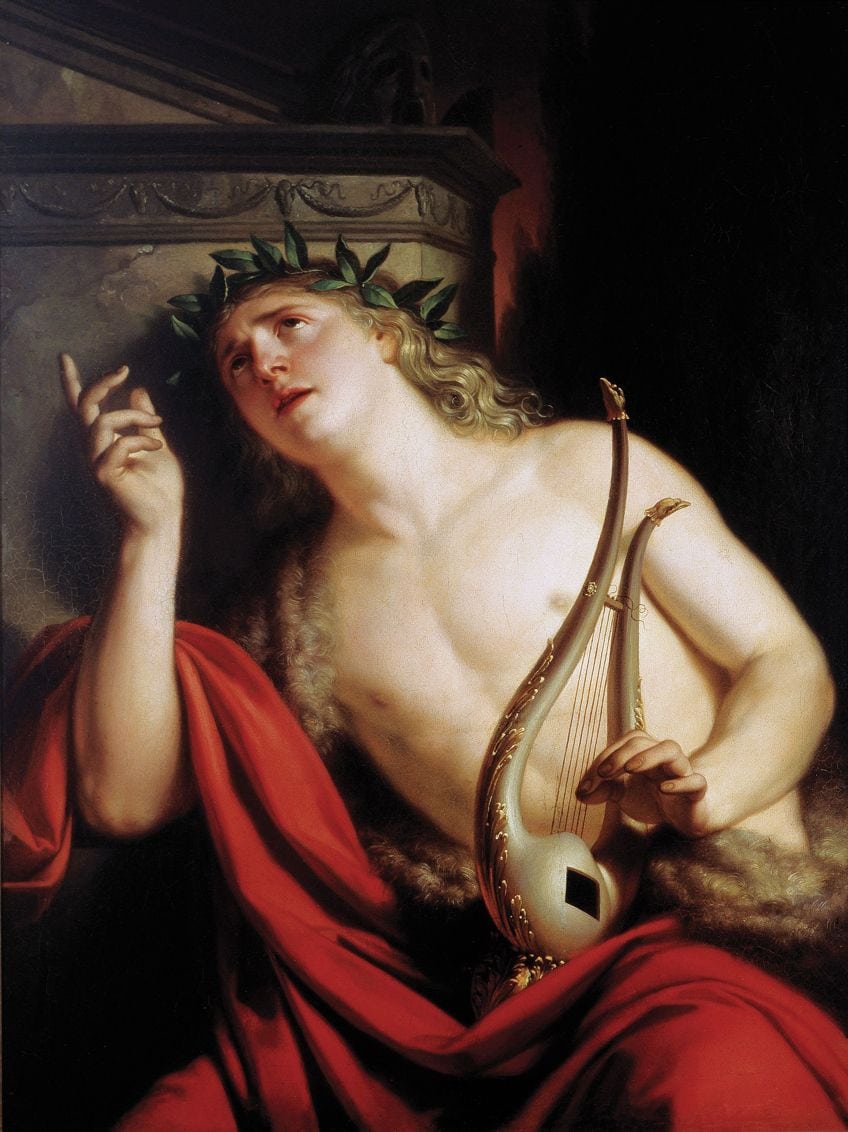 The Lament of Orpheus (19th Century) by Franz Caucig; Franz Caucig, Public domain, via Wikimedia Commons
The Lament of Orpheus (19th Century) by Franz Caucig; Franz Caucig, Public domain, via Wikimedia Commons
Castor and Pollux
Castor and Pollux saved Helen, their sister when she was stolen by Theseus, king of Attica, in one of the oldest tales concerning the twins. Helen would go on to become famous as the one who started the Trojan War. The twins followed Jason and the Argonauts on their quest for the Golden Fleece. Pollux proved his boxing talents during the voyage by murdering the Bebryce monarch. When a storm erupted during the trip, Orpheus, the Argonaut, appealed to the deities and played his harp.
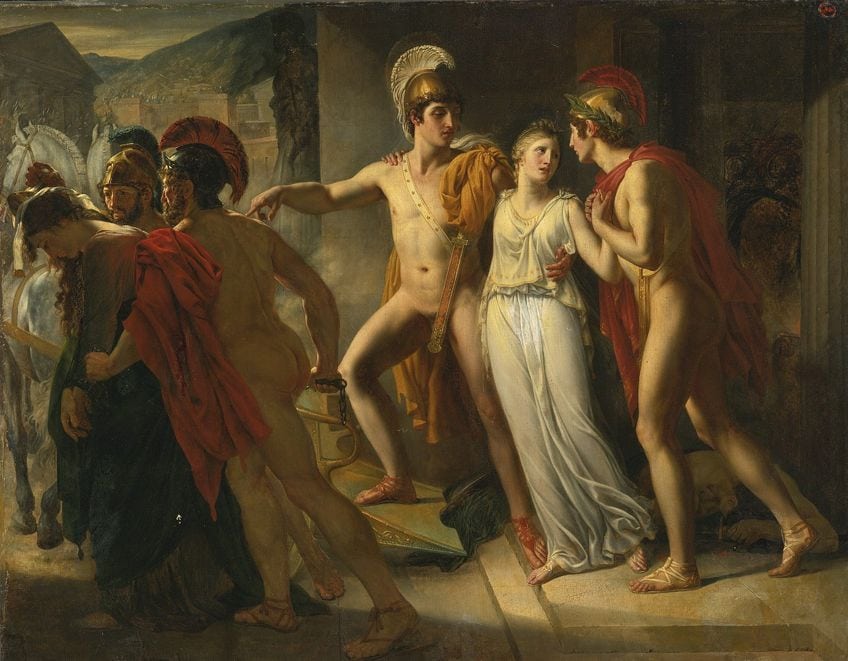 Castor and Pollux Rescuing Helen (1817) by Jean-Bruno Gassies; Jean-Bruno Gassies, Public domain, via Wikimedia Commons
Castor and Pollux Rescuing Helen (1817) by Jean-Bruno Gassies; Jean-Bruno Gassies, Public domain, via Wikimedia Commons
The storm instantly stopped, and stars emerged on the twins’ heads. Because of this tradition, Castor and Pollux were known as the patrons of seafarers. Another myth has to do with Castor’s death. According to one source, the twins intended to marry their cousins Hilaria and Phoebe. The ladies, however, had already been promised to two other cousins, Lynceus and Idas. Castor and Pollux led the women to Sparta as their male cousins pursued them. In the ensuing battle, the twins killed both Lynceus and Idas, but Castor was gravely wounded.
That completes our look at the list of Greek heroes. What is it that made the heroes of Greek mythology so special? The ancient Greeks’ heroes were renowned for their amazing feats that lifted their stories to the same level as the gods and goddesses of ancient Greece. Their incredible tales live on forever in Greek mythology, inspiring those who read their stories through the centuries. If you could choose to be a Greek hero for the day, which individual on our list of Greek heroes would you choose to be?
Frequently Asked Questions
What Are Greek Heroes?
The Greek heroes were a group of significant or extraordinary humans whose exploits established the mythological Age of Heroes. They were regularly accorded cult honors after death in Greek religion and worshiped in hero cults. The Greek idea of a hero is hard to define. The phrase was employed variably in antiquity depending on the context. It may refer to fierce warriors, noteworthy historical characters, city founders, notable innovators, or cherished ancestors who earned cult honors. In Greek culture, the phrase additionally referred to notable mortals from mythology, particularly renowned warriors and those who died in combat.
Who Are Some of the Famous Greek Heroes?
Greek mythology is full of famous Greek heroes known for their mythical adventures and deeds. Hercules is considered one of the most well-known heroes, and his story about his 12 labors is some of the most renowned in Greek mythology. Others include Achilles, who was said to be almost invincible, except for one spot of his body that we now refer to as the Achilles heel. Oedipus is another famous example, who was a child that was cast away due to a prophecy that he would one day murder his father and marry his own mother.

I am deeply passionate about history and am constantly fascinated by the rich and complex stories of the past. As the editor-in-chief of learning-history.com, I have the opportunity to share this passion with a wide audience through the creation and distribution of engaging and informative content about historical events, persons, and cultures. Whether it’s through writing articles and blog posts or creating videos or podcasts, I strive to bring the past to life in a way that is both accurate and enjoyable. My expertise in history, combined with my strong writing and communication skills, allows me to effectively communicate complex historical concepts and make them accessible and interesting to a wide range of readers. I am truly grateful for the opportunity to share my love of history with others through my work on learning-history.com.

